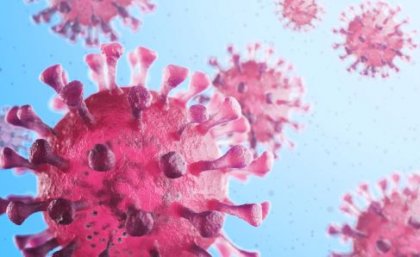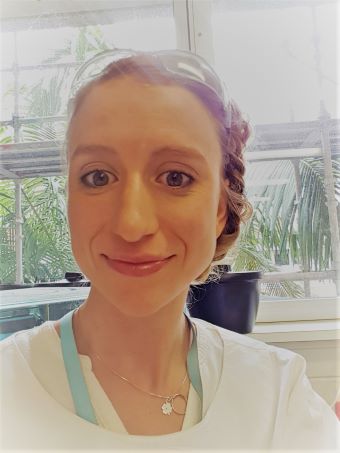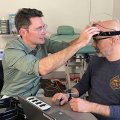
More than 1,400 experts have visited Brisbane for the world’s only scientific meeting dedicated to influenza.
OPTIONS XII for the Control of Influenza, run by the International Society for Influenza and Respiratory Virus Diseases, was held over 4 days showcasing new data and knowledge from world-leading scientists and researchers.
Speakers from The University of Queensland included Professor Paul Young and Deputy Vice-Chancellor (Indigenous Engagement) Professor Bronwyn Fredericks.
Leading virologist Associate Professor Kirsty Short from UQ's School of Chemistry and Molecular Biosciences was the Conference Chair.
Here she shares her top 5 takeaways:
1. H5N1 influenza and the dairy industry
“Australia is anticipating the arrival of H5N1 influenza, or ‘bird flu’, this spring, “ Dr Short said.
“There’s been a lot of focus on the potential impact on poultry, wildlife and human health, but little discussion of what it could mean for Australia’s $6-billion dairy cattle industry.
“This year H5N1 was identified in US dairy cattle, as well as multiple cases of human infection.
“The conference heard from US experts about the virus targeting the cow’s mammary glands and shedding high amounts of virus in the milk, which has implications for people who consume unpasteurised milk.”
 2. Long COVID
2. Long COVID
“We still don’t know what causes long COVID, and there’s no proper diagnostic guidelines or treatment available,” Dr Short said.
“Among the new data presented at the conference was a significant association between viral persistence and long COVID symptoms.
“We also heard about being able to use markers of the body’s immune response in diagnosing the chronic condition.
“Some experts suggest long COVID may actually represent an umbrella term, and we should start thinking of it as a range of different conditions.”
3. First Nations respiratory virus health
“The Federal Government recently made elevating Aboriginal and Torres Strait Islander knowledge systems a dedicated National Science priority,” Dr Short said.
“This is crucial, as we know First Nations populations experience a disproportionate burden of disease in viral pandemics.
“The conference heard that one reason for this is the high prevalence of chronic medical conditions like diabetes and kidney disease, which are known to increase viral disease.
So addressing these non-communicable diseases in First Nations communities will go a long way in reducing the burden of communicable diseases.”
4. New vaccines for influenza
“The conference heard several presentations about new vaccine technologies for influenza,” Dr Short said.
“There are some very promising results from mRNA vaccine trials.
“We also heard the latest on the development of skin patches to deliver injection-free influenza vaccines.
“It’s certainly an exciting time for research in this area and I look forward to these new technologies progressing through to the clinical stage.”
5. RSV vaccines and treatments
“The last year has seen the emergence of vaccines for RSV – a disease which causes severe respiratory problems in the very young and very old,” Dr Short said.
“They include the antibody cocktail Nirsevimab that can be given to newborn babies to protect them in the first year of life.
“The conference heard some impressive results of the vaccine being administered in Europe, including significant reductions in infant hospitalisations for RSV.
“In Australia Nirsevimab is currently available to babies and children through some state-managed programs, but the overseas data shows there’s a strong argument for it to be offered more widely.”
Dr Short said the OPTIONS XII conference has confirmed Australia’s reputation as a science leader.
“We are known globally for our strength in immunology, vaccine development and influenza research, with Brisbane in particular on an exciting trajectory.”
Image above left: Associate Professor Kirsty Short.
Media contact
UQ Communications
communications@uq.edu.au
+61 429 056 139







